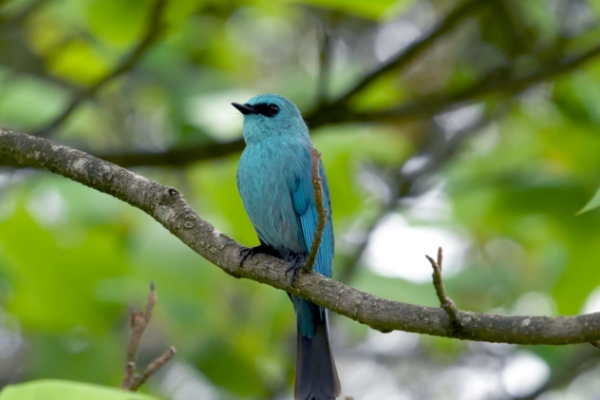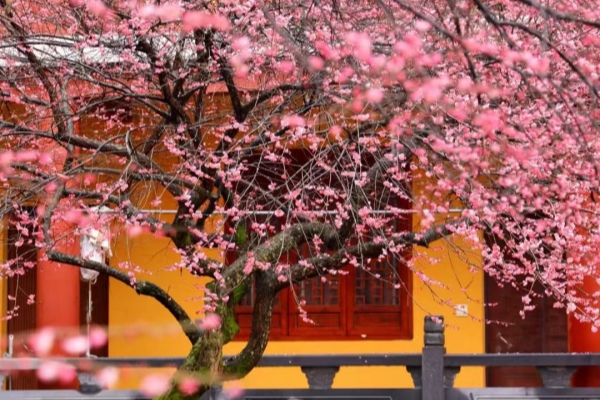Quality agri-produce gaining overseas popularity
Fruits and foodstuffs from China, including waxberries, green plums, juicy peaches and unagi, are experiencing a sales boom in overseas markets this year.
The nation's strict quality standards for the export of agricultural products-such as fast Customs clearance, dynamic cross-border e-commerce channels, growing deployment of cold chain containers and high-end storage compartments that can be used aboard container vessels-are all bringing in more opportunities, said Jiang Wen, a researcher at the Chinese Academy of Agricultural Sciences in Beijing.
Waxberry grower Zhang Chunhua is among those tasting sweet profits from the trade. Zhang and his peers have started selling waxberries since 2019 to Singapore, Spain, the United States and other countries, and export orders this year have been better than ever, he said.
Waxberries grown in Qingtian county of East China's Zhejiang province were sold for more than 10 yuan ($1.55) apiece in European markets and are considered a unique and high-end fruit in foreign markets, said Xia Xiaoqing, a local waxberry exporter. The major international consumers are overseas Chinese and their friends.
"The restriction on international travel and COVID-19 quarantine measures upon arrival implemented by many countries have delayed many overseas Chinese travel plans to China since last year," he said. "More than 330,000 original Qingtian county residents are now living abroad. Our Singaporean clients have begun to place their orders in metric tons."
Since June 1, when the first batches were sent abroad, Qingtian county had exported more than 30 tons of waxberries this year, according to local Customs data.
After three years of applications to gain qualification from the government, Li Jing, general manager of Shanghai Hongjiu Agricultural Development Co Ltd, said the company shipped two tons of juicy peaches produced in Nanhui, a part of Shanghai Pudong New Area, to Singapore by air on July 20. The fruit arrived at Singapore's Changi Airport the same day.
Li Guoxiang, a researcher at the Rural Development Institute under the Chinese Academy of Social Sciences, said growing exports of agricultural products will contribute to rural revitalization and enrich the country's export structure.
"Simply growing grains and vegetables won't help farmers to boost their income. Agricultural product processing, industrialization and new business forms of foreign trade are key to boost farmers' income and create momentum for China's county-level economies," he said.
Boosted by e-commerce channels and the improvement of packaging, Zhang Jiaolin, executive president of Fujian Unagi Association, said the price of China's broiled unagi products dropped by 50 percent in the first half of last year due to the pandemic. With the recovery of both home and overseas markets, prices and demand rebounded since the third quarter of 2020.
The average annual export volume of China's broiled unagi product is between 39,000 tons and 42,000 tons over the past five years, with Japan, the US and Russia remaining its top three markets across the world, data from the General Administration of Customs showed.
Thanks to China's complete industrial chain, COSCO Shipping Lines Co Ltd, a subsidiary of China COSCO Shipping Corp, the world's largest shipping company, has also assisted litchi farmers and export firms in Lianjiang, Guangdong province, to arrange cold chain container boxes to ship their fruit to the US market within a half-month period.
Though it is hard to procure containers these days, especially high-end cold chain ones, the Chinese shipping company has provided its clients with services to meet the demand of inspection and quarantine standards related to the cool treatment of litchi imported by the US, stipulated by the US Food and Drug Administration, to ensure smooth operations, said the information office of Shanghai-headquartered China COSCO Shipping Corp.

 Lishui establishes intelligent biodiversity monitoring system
Lishui establishes intelligent biodiversity monitoring system New fungus species discovered in Qingyuan
New fungus species discovered in Qingyuan Lishui transforms weirs to aid fish migration
Lishui transforms weirs to aid fish migration